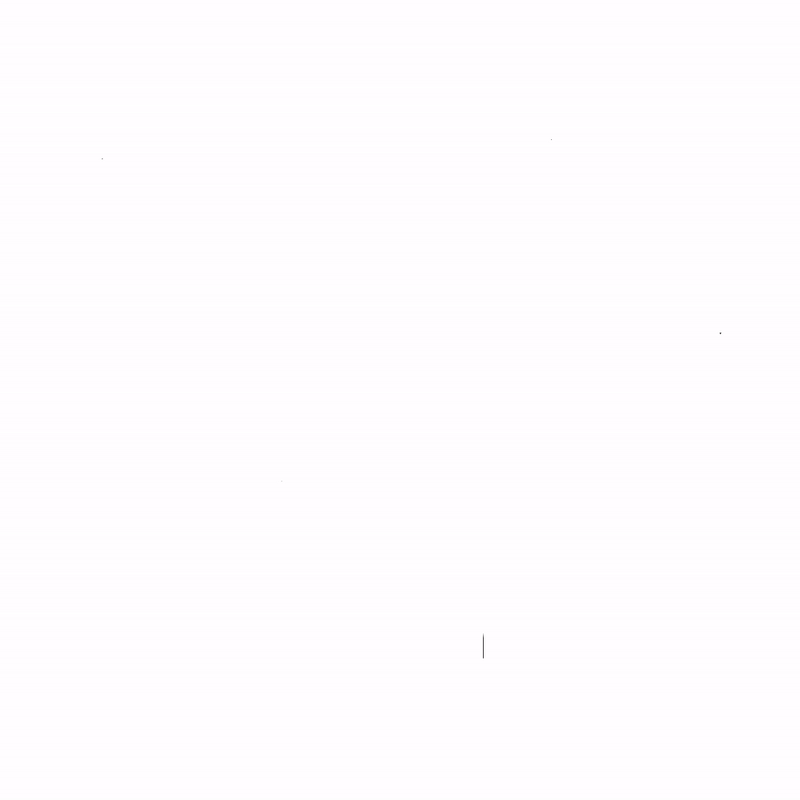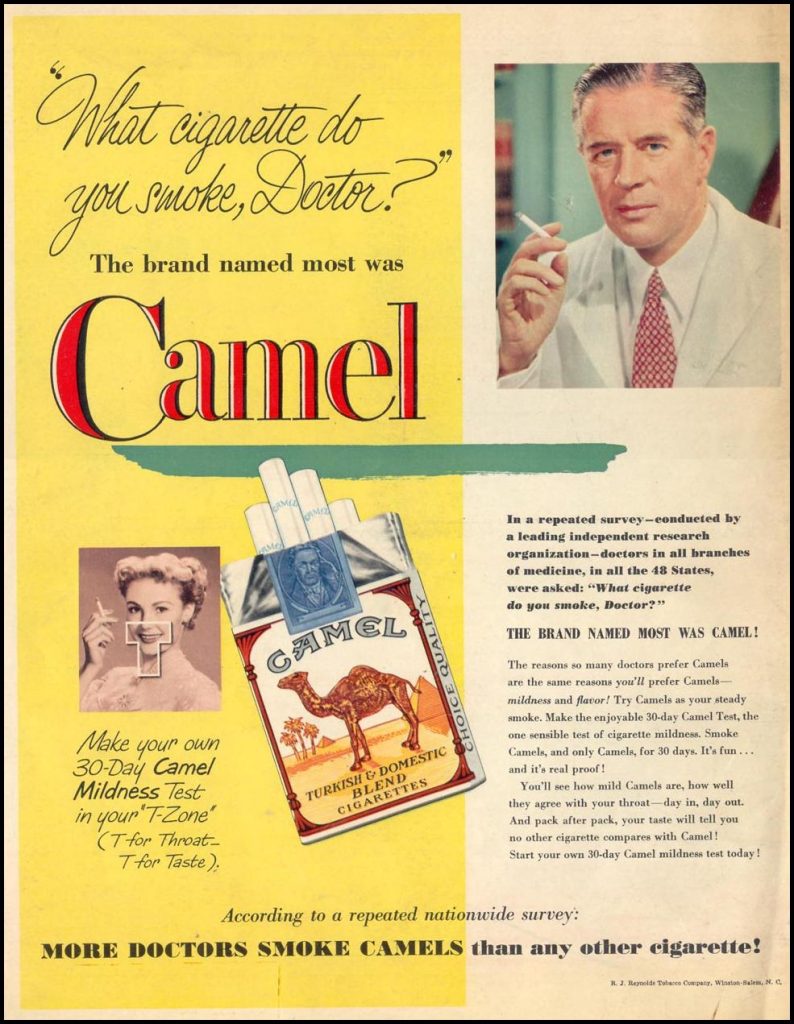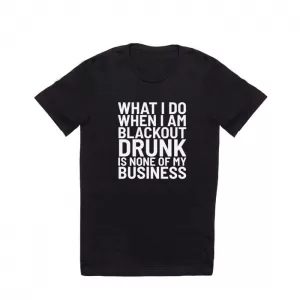I never thought It Would Come To This…
If you told me 10 years ago that I would one day refuse fine wine & bourbon on weekends, I would not have believed you. But as of October 2022, I’ve been sober for over 6 months, and life has never been better. If you’re thinking at this point “Oh no, not another sobriety brag post by some privileged yuppie health nut who lives in the gym,” take a pause – that’s not it. I’ve had the rare sip of bourbon at mountaintop campsites, and went to a distillery for a tasting while camping in Tofino.
So no, this is not another self congratulatory “I’m better than you” post from some wannabe self-help coach pushing for absolute abstinence. This is a truthful recount of my own imperfect journey.
Ground Rule – “Normal” doesn’t always equate to “Optimal”
I’m not telling you what to do – but let’s first question the normalcy of what many still deem as the norm.
Many major shifts in our civilization have occurred because we question what is the “norm”. Copernicus insisted against the normalised belief that the sun revolves around the earth and got himself shunned then executed by the church, only to be vindicated by Galileo Galilei a century later.
Read the following quote, and observe your immediate reaction:
“Cigarettes are a healthy way to relieve stress, recommended by doctors, for classy businessmen and elegant ladies.”
Most of us will cringe at this, but this was the norm for decades! Up until the 70s, cigarettes were considered harmless that even doctors enjoyed. It was not until 1989 that Canada banned all cigarette advertisements (the UK & USA did so in 1965 & 1970, respectively). Smoking inside planes & restaurants, as well as doctor offices, was a norm.

Molson Canadian Ads are a mainstay in Hockey Culture
Alcohol Is A Normal Part Of Our Lives (For Now)
Alcohol was infrequent except for the powerful and rich for most of human history. Regular consumption rose heavily across the 19th & 20th century. In two centuries, the human labour to produce a kilogram of American wheat was reduced from 10 minutes to less than two seconds. Along with it came an unprecedented amount of free time and excess resources redirected towards entertainment & leisure. Boozing didn’t have to remain scarce.
The Industry Pushes It Heavily For Profits
With all the disposable income at hand, Hockey nights in Canada were to be accompanied by Molson beers. College parties aren’t cool without Nude vodka drinks. How can you sit on a beach without a Corona? It is marketed by the liquor industry as a critical part of a cool lifestyle. Getting a drink after a stressful day of work is seen as such a bliss, that the restaurant industry coined it “Happy Hour” to attract more patrons before the dinner rush.
We’ve accepted it as a normal part of our lives
“Phew, I had a rough day! I need a strong one!” shows we accept alcohol as a normal tool for stress relief. Weddings, birthdays and office parties are presumed to serve wine & cocktails. Beach picnics mean IPAs and ciders in a Yeti cooler (I still love sipping bourbon by a campfire after a massive climb, by the way). Many of us push it on each other as a norm, asking “Why aren’t you drinking?” when somebody refuses a drink.
But is this reasonable?
 Do you brag about how much bleach you can drink?
Do you brag about how much bleach you can drink?
How much, and how often, is too much? We see T-shirts glamourising how much one can drink. College students are encouraged to fight through hangovers to drink & party on for days.
We don’t test how much bleach one can drink without puking. Why do we make a competition out of consuming something that causes 140,000 excess deaths per year in the USA alone? Alcohol, like cigarettes, is a Group 1 carcinogen with proven links to cancer. Excess consumption decimates your good gut bacteria, ruins your sleep (and recovery), and the hangover debilitates you the next day (or more).
Many of us still promote inebriation as a sign of good times and bravado, and build a sense of camaraderie around hangovers, despite the morbid consequences that come with it.
With the new research and facts emerging, I started questioning the normalcy of alcohol consumption. But the final tipping points are much more personal.
Two Major Triggers That Made Me Question Alcohol
I told you this is not another self-congratulatory show-off post. I’m going to openly share stories of personal failures & lows that got me to this point.
Gout Flare-ups Started Hitting Me At Only Age 30
I had my first gout flareup in my early 30s, far too young. I reduced my alcohol & red meat intake. As the years went by, however, the frequency of flares went up. After going on Allopurinol (medication that reduces uric acid levels) for a few months, I concluded this means my metabolic system did not tolerate the alcohol as well as others. Asians are more prone to kidney stones after immigrating to North America, and our kidneys/livers do not process purines and alcohol as well as others. Something had to change to protect my health in the long term.
Hurting Someone I Loved Very Much Was Rock Bottom
There was nothing worse than what I felt that morning after waking up in our hotel room with my head pounding, stomach upset, and vague memories of an awful argument. My girlfriend at the time and I had broken into a dramatic fight at one of my best friends’ weddings in Puerto Vallarta. What we could have easily resolved escalated into a tear inducing fight while under the influence of wine & tequila. What was meant to be a romantic vacation in a beautiful tropical destination had this massive blemish of a painful memory of hurting somebody that I loved the most. I never want to do that ever again to anyone I love and care for… ever.
That morning, we both decided to remove alcohol from our lives, and embrace sobriety. We weren’t “avoiding” alcohol – we decided to “choose” a clear state of being as the norm to become the best versions of ourselves.
How Will Society View Alcohol in 30~50 years?
I am (for now) in the minority who choose sobriety. In most social settings, I am the odd one out that drinks soda water. But there are many others who have embarked on a journey called Sober Curious. Decades ago we thought cigarettes were OK everywhere, and now we shun it as a deadly substance. Where will society be at with alcohol decades from now? I started asking which side of history I want to be a part of.
- Do I want to be one of the people interviewed in a documentary, undergoing cancer treatment, saying “We had no idea it could be so bad!” Did you know that Canada saw 7,000 of cancer cases linked to alcohol in 2020 alone?
- Or, do I want to be one of the early pioneers who quit alcohol ahead of time, and enjoys a much healthier state of existence late into my senior years? I’d like to be cancer-free, mobile and active with a healthy cardiovascular system in 30 years (2050s).
What I Gained By Choosing Sobriety As A Norm
Lot of people phrase sobriety as “giving up” or “quitting” drinking. I focused more on what I had to gain, and the benefits I obtained from it, and I am delighted to share my positive gains.
A Hell Of A Lot More Time!
Many of us wonder “What I would do with another hour a day!” – I don’t wonder anymore. I’ve gained more than that. My Saturday & Sunday mornings are full of energy and I can start my adventures and activities earlier with more gusto. The occasional weekday drinks that used to keep me from my morning CrossfitBC classes were no longer.
Better Sleep & Healthier Stress Management
Stress, anxiety, and occasional sleeplessness comes with owning your own business. Consumption of alcohol disrupts your sleep significantly, and removing it improved my sleep immediately. The sleepless nights became much less frequent, and my sleep cycle became more regular which also allows me to recover and train more frequently.
Instead of having a drink after a stressful day, I would redirect that to reading/writing, or more physical activities which are much healthier ways to release dopamine to combat stress and anxiety.

The positive effects were compounding and self-propelling, amplifying each other.
Better Revenue & Efficiency (Money)
I am a high-output individual with several staff to lead and hundreds of clients to service. Every hour counts a lot. Higher mental clarity when I am at my office leads to higher productivity. Our 2022 revenues grew by double digits, and our efficiency and quality went up too.
Time is money, after all, and you can’t make more of it – you can only use it more wisely to get more out of your life. This cascaded into multitudes of other gains.
More Intellectual Growth Through Reading
I used to be an avid (and a fast) reader in my youth, and at some point during adulthood that habit was lost. There were times when I would crawl through 1 book a year as I did not prioritise it. In 2022 I finished 20 books. Instead of wasting energy on dysfunctional hangovers, I was filling my brain with new business strategies and knowledge, or expanding my experiences and empathy through fiction. Did this also bring better performance at work? You bet!
Growth in Savings & Investments (Money)
$17 for a glass of wine or a cocktail, $9 for a pint of beer can add up very quickly. With my very social lifestyle as well as client dinners, it was adding up quickly. I put together a rough estimate (assuming $14/drink is the average with tax & tip):
- 3 meals out per week, and 2~3 drinks per meal,
- 1 weekend night out with 5~6 drinks throughout,
- = 11 ~ 15 drinks out a week = $154 ~ $210/week (over $10,000/yr)
Far Better Physical Health & Fitness
Better sleep, more time, and faster recovery naturally got me working out more frequently. Over 2022 my body comfortably adjusted to training 9~12 times per week (between Crossfit, Stretch Yoga classes and Fitness World visits) – far more than what I could handle in my 20s. My calorie intake dropped as well. I am in better shape at 37 than I was at 29 – in terms of both function (endurance, power & agility) and physique (10 lbs less fat, 5 lbs more muscle).
This doesn’t even factor liquor store bills. Some of you are probably thinking “it’s upwards of this” – these are indeed conservative numbers for Vancouver/Toronto dwellers where the cost and frequency is higher.
Now I’m saving an additional $10k a year, which goes towards various investments and mortgage pay-down. You can calculate what $10k/yr, or $833 a month, can add up to with compounding gains.
A Radical Transformation in Habits That FIt My Identity
The chain effects resulted in some of the biggest transformations since I quit smoking in 2011 (more on that is coming on another post!). In the end, my overall well-being was dramatically improved on all fronts – physically, emotionally, and financially.
Some of the biggest pieces of my identity is discipline for delayed gratification. My act of choosing sobriety puts me in better alignment with my identity, which brought me peace of mind as well.
I’m not telling you what to do or judging anybody. This is just my own journey, and yours is your own.
I will still have the rare drink on special occasions, or while away on vacation, but averaging less than 3 drinks a month. I have not been “drunk” since I chose sobriety. The slight buzz I feel from the rare drink is plenty fun, without the heavy and frequent price to pay in diminished performance and wasted time.
I’m not preaching abstinence or prohibition, but rather encouraging questions instead of silently obliging to the existing assumption of “normal” – where you take that next (or not) is your journey.



